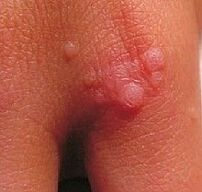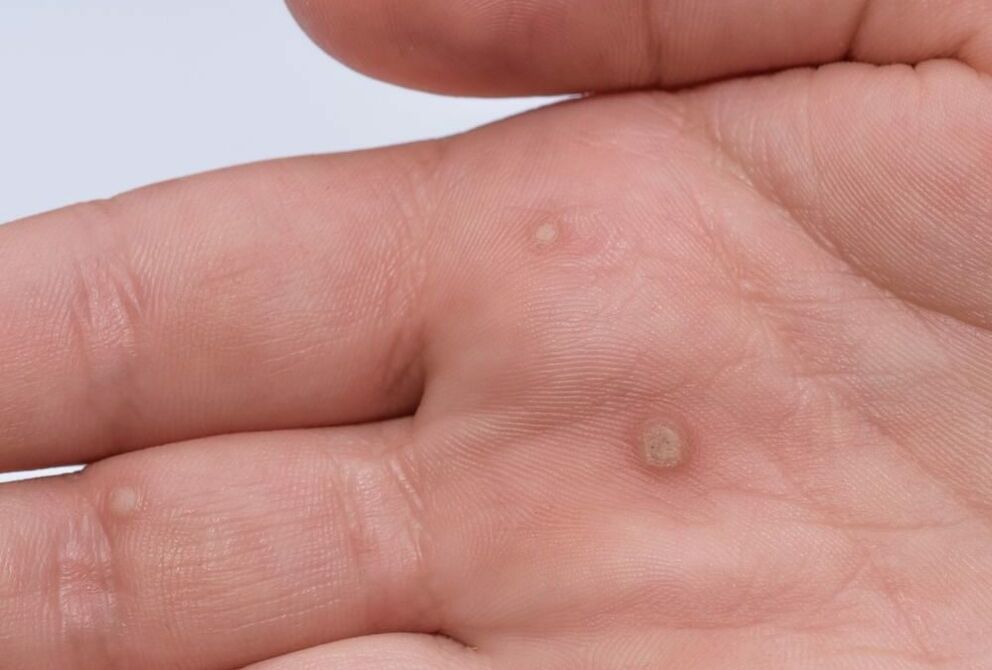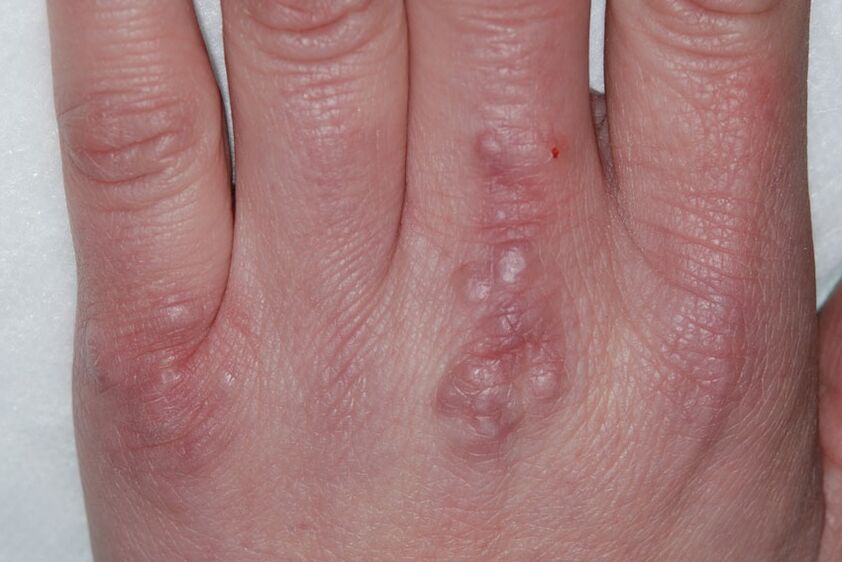
Warts are neoplasms of a viral nature, they can form on any part of the human skin, but their most common location is on the hands, soles of the feet, face and neck.
It is proven that the cause of warts is the human papillomavirus HPV, which has more than 100 species, many of which contribute to the malignancy of neoplasms. Therefore, it is impossible to ignore the appearance of any growth on the body, you should immediately contact a specialist to clarify the exact diagnosis, type, nature of education, differentiate it from other skin diseases.
In this article, we will see how to effectively and quickly get rid of warts on the hands, as well as what popular recipes will help to remove warts at home. Read comments about successful treatment in the comments.
What causes hand warts?
Warts are a sign of the human papillomavirus, or HPV for short, in the body. There are many strains of this virus, the most active among them is HPV No. 2, it is because of this that warts appear on the hands.
The virus is transmitted very quickly in closed spaces with high temperature and humid air. Therefore, places such as swimming pools, saunas and baths are the most suitable for the wide spread of papillomaviruses. The most successful area for the occurrence of warts is the hands, as this part of the body is most often in contact in certain human life processes. Does the treatment of warts on the hands have its own characteristics, since, first of all, it is necessary to determine whether it is a real wart or not, and should it be removed?
Perhaps an infected person will never experience a nuisance like a wart, thanks to good health and strong immunity. But people who constantly spend all their energy on work and worry are at risk. After all, it is the weakening of the body and stress that are the real causes of warts on the hands, as in these conditions HPV begins to act especially aggressively.
Classification
It is customary to distinguish several types of warts, depending on the clinical manifestations:
- Common (common) wartsappear, as a rule, on the hands and soles of the feet, in places where damage and microtraumas most often occur. They are round, ranging in size from the head of a pin to a large pea, have an uneven surface, like cauliflower, and grow gradually, forming a "bush" of unsightly-looking warts. They are more common in teenagers during puberty.
- flat warts. These warts are often called juvenile warts as they most often occur in teenagers and young adults. Such formations have a yellowish tinge, their surface is smooth, they are practically invisible, as they protrude slightly above the skin. Such a consequence does not happen more than 3 mm. Flat warts occur on the back of the finger. Only one growth may appear, but often formations are located in groups.
- plantar warts- usually formed on the soles of the feet, with the pressure of uncomfortable shoes. More common in people with excessive leg sweating. Such warts have a deeply located nucleus, are painful, dark gray in color. This, with mechanical removal of the buildup, must be removed. Otherwise, the wart will grow back. This type of neoplasm is also found in those who work with an uncomfortable tool for a long time.
Warts on the hands: photo
As these neoplasms look like, we offer detailed photos for viewing.

How to get rid of warts on fingers?
In most cases, you don't have to do anything to get rid of the hated growth, it goes away on its own. But if a long time has passed since the appearance of the wart on the fingers, and it does not think about disappearing, but grows or multiplies, certain measures must be taken.
It is recommended to remove the wart in the following cases:
- if its color changes;
- if the wart bleeds or becomes wet;
- if the surface becomes uneven;
- with the appearance of daughter neoplasms;
- with constant friction, pressure, other mechanical damage;
- at risk of strain;
- causing aesthetic and psychological discomfort.
The problem with choosing a method for treating warts is that this is a unique neoplasm that can respond to treatment in a completely non-standard way. In some cases, any means of treating warts is useless, while in others, the warts go away on their own and without exposure.
However, you need to understand that treating warts on your hands will not save you from HPV itself, but only from its manifestations in the form of rashes, and in order to avoid a relapse in the future, you must first engage in prevention and strengthen your immunity.
How to remove warts on hands
There are four main ways to remove warts. Each of them has its own advantages and disadvantages. Which method to get rid of the wart - the specialist must decide by examining the area of the skin damaged by the wart.
- laser removal. The most effective, maintenance-free and painless. The entire process takes several minutes, and where the wart was, only a small, imperceptible depression remains.
- cryotherapy. The essence of the method is to freeze the formation with liquid nitrogen, as a result, the condyloma dies and exfoliates for 5-6 days. There are no traces after this procedure if you properly care for the wound.
- electrocoagulation. It is performed under local anesthesia using a surgical coagulator. A thin metal plate, under the influence of a high-frequency electrical current, produces layer-by-layer sections of the wart. In this case, coagulation (cauterization) of the affected tissue occurs. If the root of the tumor is located at a great depth of the skin surface of the hands, after the procedure, a flat, light-colored scar will remain.
- Surgical intervention. This is an excision method when dealing with a large area of rash. The operation is performed under local anesthesia and the stitches are cosmetic.
- Chemical methods to remove warts- are used much less frequently than those listed above. In this case, alkaline or caustic acid is applied to the warts. The procedure can be unique or clear. This method has several disadvantages: pain, increased risk of damage to healthy tissues, and high likelihood of wound infection. An exception in this case is salicylic acid, which is sold in a pharmacy in the form of an ointment, solution, patch. To remove some warts, this remedy is enough, but it is worth remembering that the drug is applied only to the wart.
Don't forget that removing a wart does not mean the end of treatment. For a complete cure, you need to take care of your immunity to beat the human papillomavirus.

How to remove warts on hands at home
If the warts on the fingers are neoplasms of a benign nature, their number and size are not very large, you can try to remove the warts with folk remedies at home:
- The most common form is celandine. It is necessary to lubricate the warts with fresh juice of celandine 2 times a day until the wart disappears. As a rule, this lasts for several days.
- Vinegar for warts. Often, when treating warts at home, acetic acid is used. Every night before going to bed, gently drip 1 drop of acetic acid on each wart. Over time, the warts will begin to disappear.
- Soak the onion in vinegar, tie it to the wart overnight. In order not to burn the skin that surrounds the wart, it is necessary to close it with a bandage or cut a circle of polyethylene with a hole in the center. Repeat for several days until complete disappearance.
- The Kalanchoe leaf is made into porridge, placed on the wart very thick, tied and so they sleep through the night.
Before starting the procedure at home, using any alternative treatment method, whether it be an ointment or a solution, it is advisable to steam the neoplasm for 15 minutes, remove excess water from the wart and apply the medicine.
If the traditional methods of treatment used do not give the desired effect, warts on the hands change shape and color, increase in size, itch, bleed or are constantly sore, it is recommended to urgently consult a specialist to avoid infections of large areas of healthy skin. .
In addition to the healing process and strengthening the immune system, do not forget about care in crowded places, as well as personal hygiene. If possible, you should always carry antibacterial gel with you so you don't wash your hands in public places.























